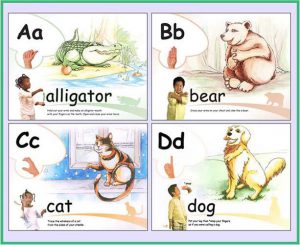

Musical intelligence: Performing, composing, and appreciating rhythmic or melodic patterns.Logical-mathematical intelligence: Logically analyzing problems, detecting patterns, reasoning.Linguistic intelligence: Learning and using spoken and written language.Types of intelligence include the following: In this theory, Gardner has defined several learning areas and has explained that not everyone learns in the same ways. Howard Gardner’s Theory of Multiple Intelligences. Multiple intelligencesĪ final thought on learning through games stems from Dr. Playing games is relaxing (as long as you do not use competition at this age) and allows students to learn without the stress or fear of possible failure. Teaching English for kindergarten requires games, play, movement, and songs, to make learning language a fun, positive experience.
TYPE TO LEARN KINDERGARTEN FREE
Feel free to check out my book of fun games to make teaching English at kindergarten more fun. On the contrary, if you engage them in a game, song, or story, they will understand and use the language simply from the exposure. You will soon have a classroom of unruly children who are not learning a thing. But who wants to sit in a class simply repeating words and what they mean? Certainly not three to five-year-olds. The more they hear and experience the vocabulary you teach, the more likely they will learn it. When you use games, songs, and stories to teach ESL to your preschool students, rely on absorption by repetition. You could make it even more dramatic by dimming the lights when the children dive down and turning them up when they surface. Next, tell the children which pictures to dive down and collect. Demonstrate by taking in a big breath, hold your breath and dive down and pick up one of the cards, then come up for air and ask the children to name the card, or you name it, depending on whether you are doing a speaking or listening activity. Instead, to turn this into a fun total physical response activity, tell your children they are pirates who have lost their treasure overboard, and they must dive down and retrieve it. On the other hand, a dull vocabulary idea is having children pick up pictures and name them. Using your voice, body, a prop to represent vocabulary or meaning. Using your body and props to imitate different types of weatherģ. That’s the theory, and in reality, TPR is essential when teaching English for kindergarten! Check out my stories and TPR lesson plans to make your teaching easier and more fun.Įxamples of total physical response activities are:Ģ.

As a result, children are more likely to be curious when presented with music, games, and total physical response activities, and therefore are more likely to learn and retain knowledge. This theory states that movement stimulates neural networks and activates mental capacities, which are not activated when sitting at a desk. Other research includes the theory of activity-based learning or total physical response. In addition, children are more likely to join in and enjoy themselves when they participate in playful activities and physical movement. That is why it is important to motivate them to want to do the class activities.

They are probably not thinking that they want to go to school to learn a second language, especially when they are still trying to grasp their first language. Preschool children are not going to understand the advantages knowing a second language will give them. Intrinsic motivation is the idea that people are motivated to do things because of internal factors. Let’s get started with the theory of intrinsic motivation. There are many reasons for this, including multiple intelligences, TPR and intrinsic motivation. The ultimate strategy for success teaching English for kindergarten is to learn through play. Teaching English for kindergarten strategies


 0 kommentar(er)
0 kommentar(er)
